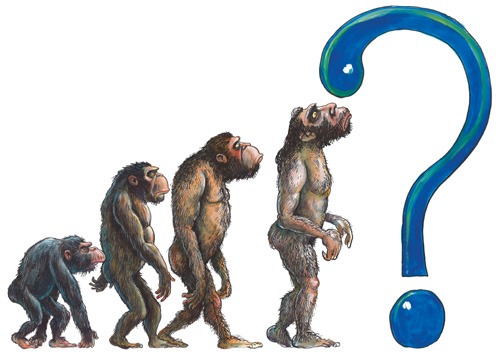via Boing Boing by David Pescovitz

Found in the January 1912 issue of Casket and Sunnyside magazine, “the foremost journal of the funeral profession since 1871”.
Continue reading
===================================
via Daily Writing Tips by Maeve Maddox
In his Essay on Criticism (1711), Alexander Pope (1688-1744) wrote:
A little learning is a dangerous thing;Continue reading
Drink deep, or taste not the Pierian spring:
there shallow draughts intoxicate the brain,
and drinking largely sobers us again.
===================================
via OUP Blog by Oxford Reference marketing team
Perhaps one of the popular sweets around the world is chocolate. This versatile and delicious food can be enjoyed as anything from a warm drink to a crunchy bar, or even a dense, flourless cake. But whatever its form, while you are savoring each bite of chocolaty goodness, keep in mind that behind the sweet flavor is a long and dynamic history that has travelled across oceans and transcended cultural boundaries. In fact the tale of the cacao bean is one filled with conquest, experimentation, and technological innovation, all on a global scale. It has been touched and moulded by everyone from sixteenth century sailors to the workers of the industrial revolution.
Continue reading
===================================
via 3 Quarks Daily: Shoaib Daniyal in Scroll.in

At the height of the Islamic Golden Age – a period from the mid-8th century to the mid-13th century when Islamic civilisation is believed to have reached its intellectual and cultural zenith – homosexuality was openly spoken and written about. Abu Nuwas (756-814), one of the great Arab classical poets during the time of the Abbasid Caliphate, wrote publicly about his homosexual desires and relations. His homoerotic poetry was openly circulated right up until the 20th century.
Continue reading
===================================
via The Red Ferret by Donyae Coles

CO2 emissions are slowly killing our planet so it’s no surprise that science is pretty dedicated to finding solutions to the problem. The CarbFix project is an innovative way to store CO2 by turning the gas into rock.
CarbFix sounds like a diet plan but it isn’t even close. This is solution to the issue of emissions that are created by manufacturing. Instead of just capturing and storing them, this system turns them back into rock by pumping it back down into the earth. Once there, it reacts with the basaltic rocks where the gas turns to, well, rock.
This isn’t a quick process. Although originally they had predicted it would take many, many years to change, they began to see results within two years. It is still in the research stage but this innovation could mean great things in the fight against global warming which is good for everyone.
You can check out the website for more detailed information and there’s also a game to help educate visitors on the issues with CO2 emissions.
===================================
via OUP Blog by Joe Hoover
What gives you the right? We are familiar with rights claiming, it comes easily to our lips when we believe we are entitled to something – to respect, to our fair share. Rights are fighting words. We invoke them when we have been wronged, when a situation has become intolerable. Rights claims are a way of fighting for control.
Continue reading
===================================
Oscar Wilde’s long-suffering wife is supposed to be buried in Italy. So what’s her gravestone doing in a cemetery in Spain, and who lies under it?
via Arts & Letters Daily: Robert Latona in The Smart Set
Even her husband’s bed partners – and there were always plenty of those around – found mostly good things to say about Mrs. Oscar Wilde, or “poor, dear Constance” as she was known in polite society after the Bosie scandal broke their marriage wide open. “So sweet, so pretty and good, how came she by her outrageously intellectual husband?” wondered Richard Le Gallienne. “It was impossible not to predict suffering for a woman so domestic and simple mated with a mind so searching and so perverse, and a character so self-indulgent.”
Continue reading
===================================
via 3 Quarks Daily: Nicholas Mayes at The Spectator
Here we might learn something from the Wahhabis. Plenty of observers have bewailed the Saudi authorities’ bulldozing of many of Mecca’s and Medina’s earliest buildings, pulled down lest they become shrines in themselves and distract from the core tenets of Islam. But the custodians of the holy mosques understand that Muhammad, like Ben Jonson’s Shakespeare, ‘is not of an age but for all time’.
Continue reading
===================================
via Boing Boing by Mark Frauenfelder

Check out the detail here
===================================
The myth of human nature
via 3 Quarks Daily: Tim Lewens in New Humanist

"What,” asked the distinguished evolutionist Michael Ghiselin in 1997, “does evolution teach us about human nature?” The answer he gave will surprise those who suppose that the evolutionary sciences describe the deepest and most ubiquitous aspects of our psychological makeup. Ghiselin informed his readers that evolution “teaches us that human nature is a superstition.” Why would anyone say such a thing? Doesn’t talk about human nature amount to talk about the ways we are all the same? What could be objectionable about that? We can begin to understand the problems if we look back 180 years.
Continue reading
via 3 Quarks Daily: Tim Lewens in New Humanist

"What,” asked the distinguished evolutionist Michael Ghiselin in 1997, “does evolution teach us about human nature?” The answer he gave will surprise those who suppose that the evolutionary sciences describe the deepest and most ubiquitous aspects of our psychological makeup. Ghiselin informed his readers that evolution “teaches us that human nature is a superstition.” Why would anyone say such a thing? Doesn’t talk about human nature amount to talk about the ways we are all the same? What could be objectionable about that? We can begin to understand the problems if we look back 180 years.
Continue reading
No comments:
Post a Comment